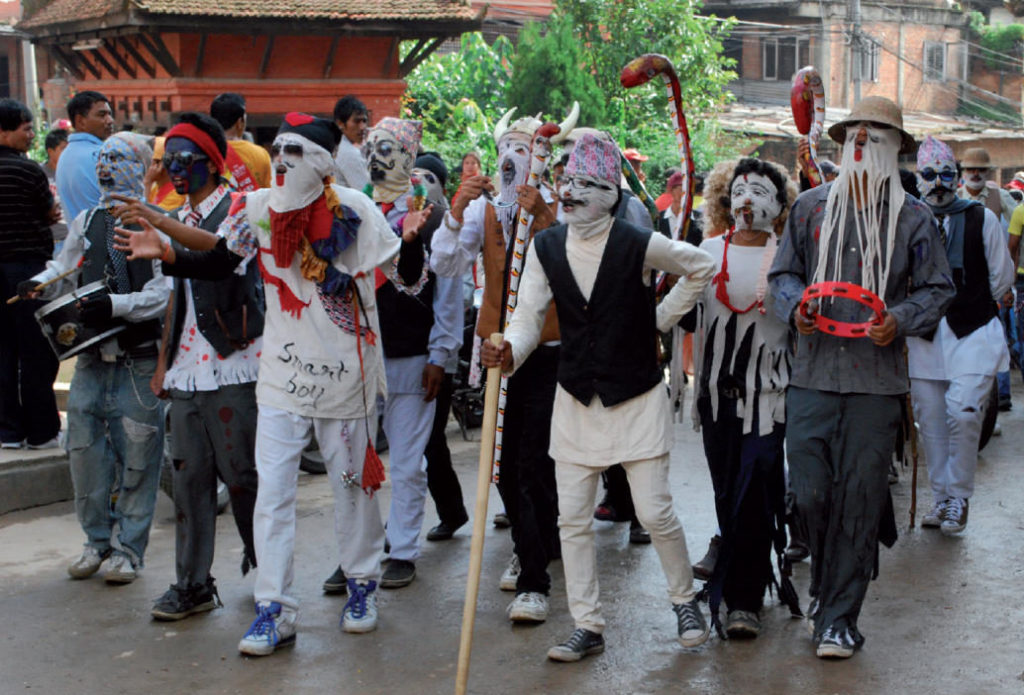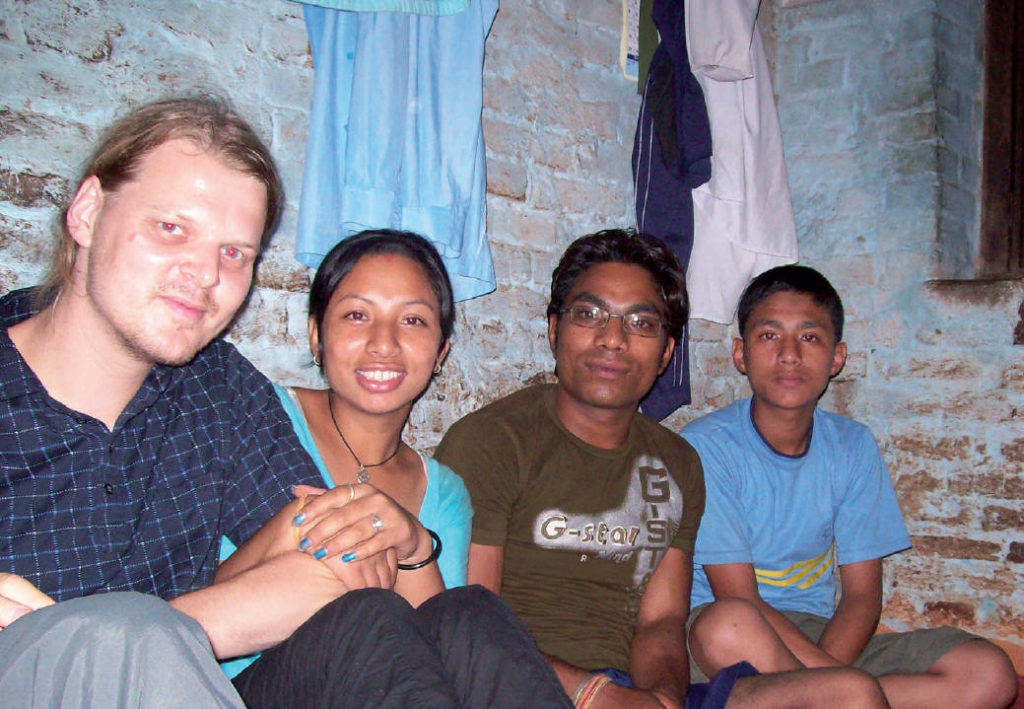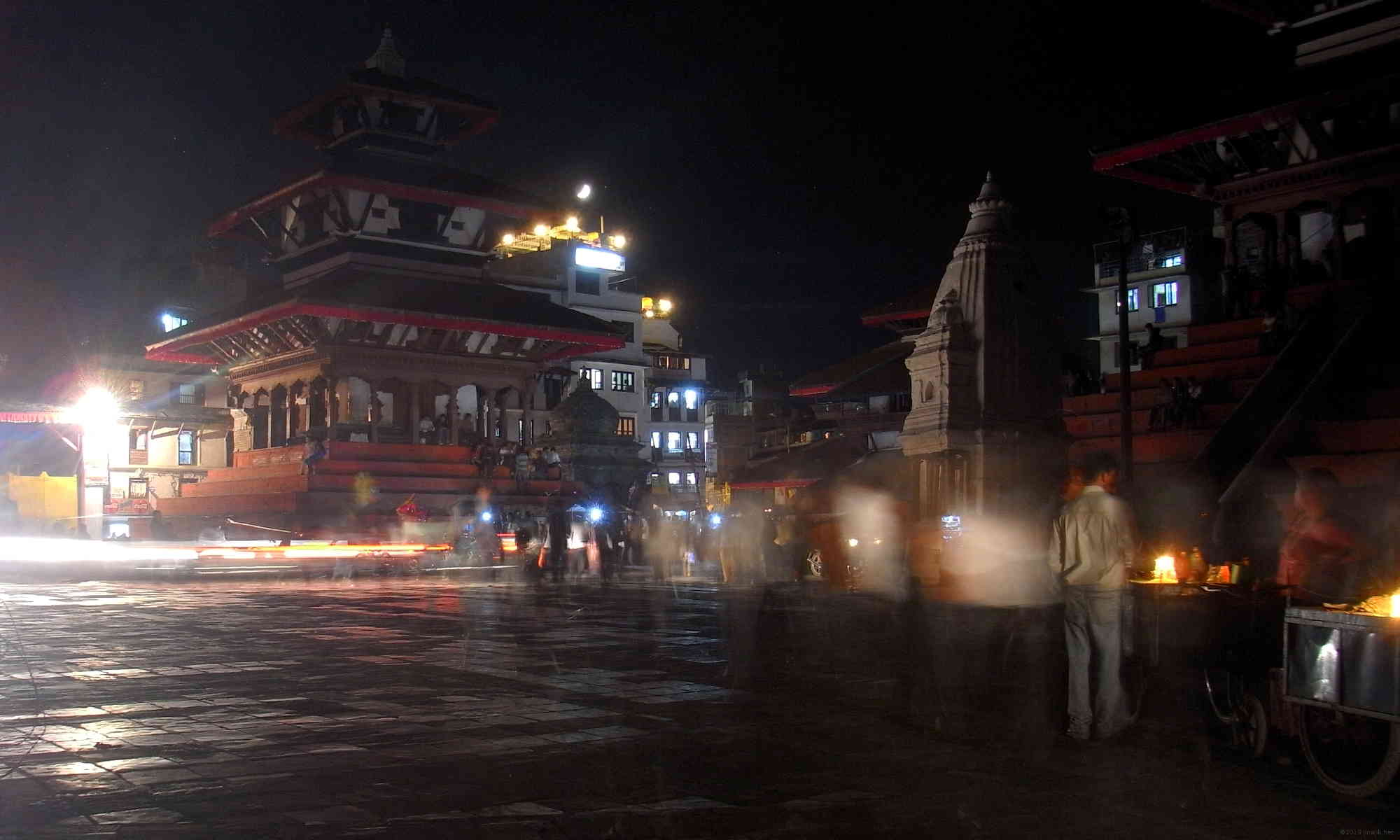Feichtinger, Walter. 2011. Rituelle Pluralität und Performanz. Das Newar Festival Nyakū Jātrā Matayā in Pāṭan, Nepal. Diplomarbeit (Mag. Phil.), University of Vienna. Fakultät für Sozialwissenschaften. URN: urn:nbn:at:at-ubw:1-29510.85611.848460-1. [PDF]

Abstract: This diploma thesis is about the plural ritual praxis of a religious festival of the Newars in the city of Pāṭan, within the Kathmandu Valley in Nepal. The Nyakū Jātrā Matayā serves as a stage for the living and dead, gods and demons, as well as the beliefs of two religious systems and a globalized society that is at the same time deep-rooted in tradition. The ethnographic description deals with the ritual complex that consists of four processions as well as a series of musical performances and further rituals, with its function and meaning. This is followed by the description of the (ritual) actors of the festival: Buddhist priests, organizers, musicians, helpers, pilgrims and spectators. A special focus lies in the action (ritual performance) of the participants of the central procession Matayā and the complex motives of their participation. The key to the comprehension of the plural ritual actions lies on the one hand in the different world-views of the diverse participants as well as their differing necessities, on the other hand in the ability to shape their ritual actions (agency) which presumes a questioning of the ritual praxis (reflexivity) by the actors. The individual actions themselves can range between being heteronomous (acting according to script) and autonomous (reflexive action).


